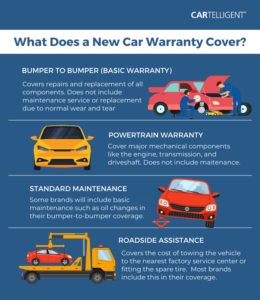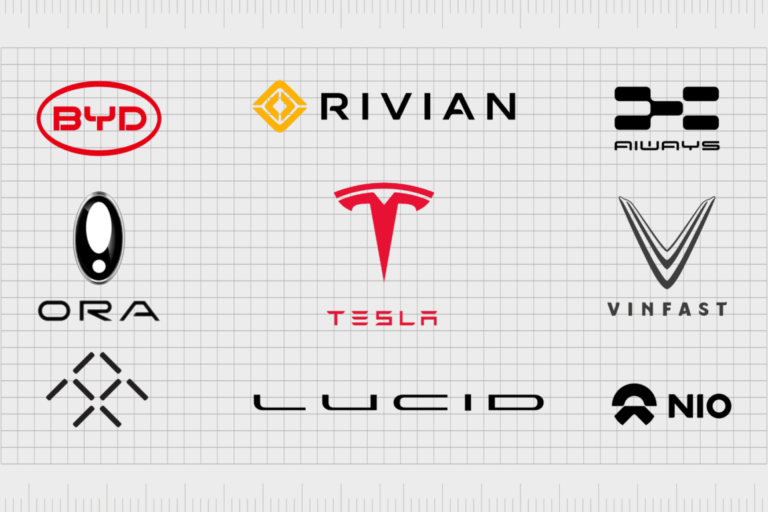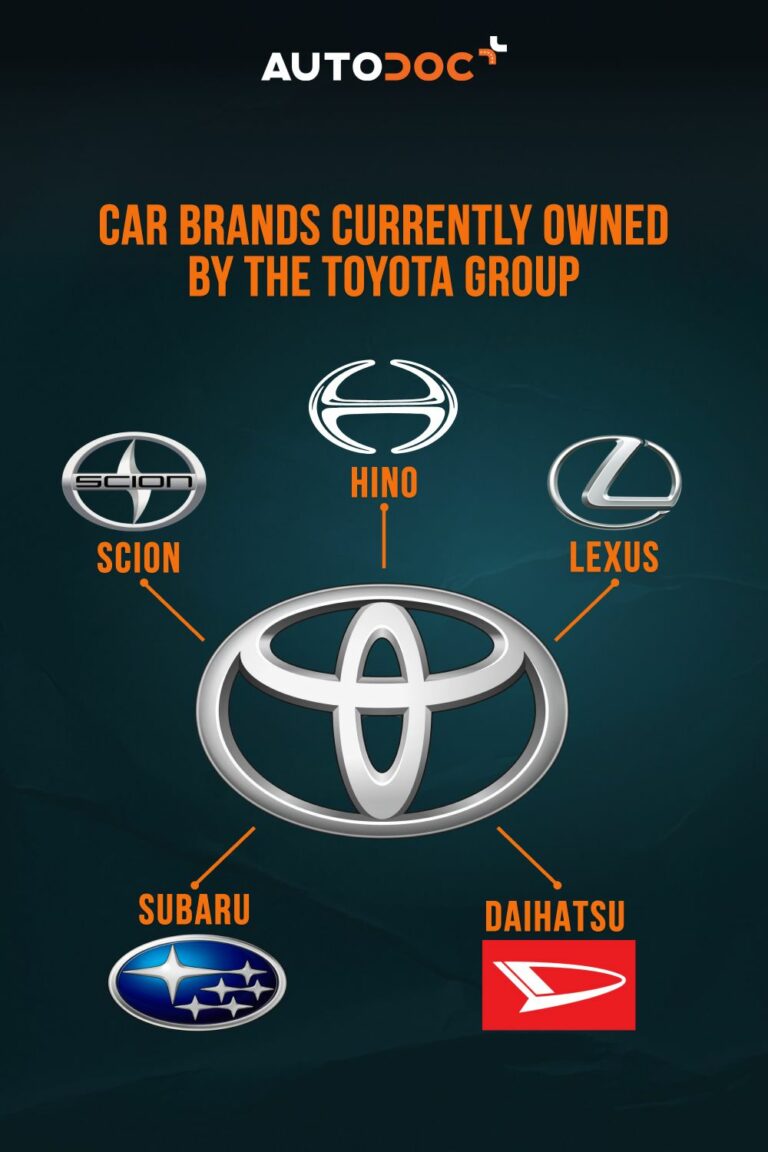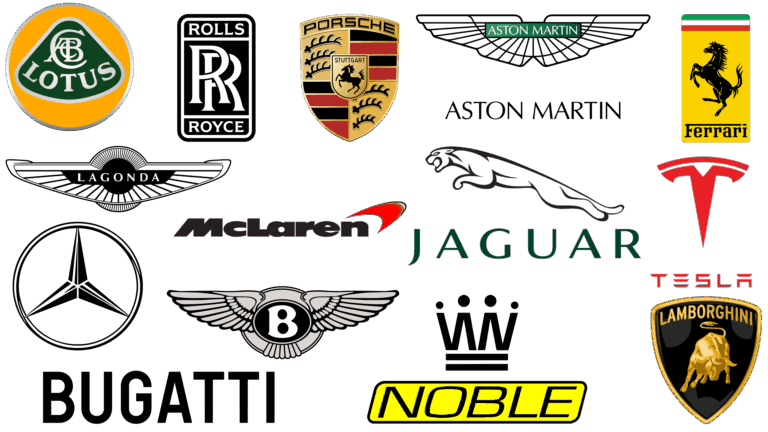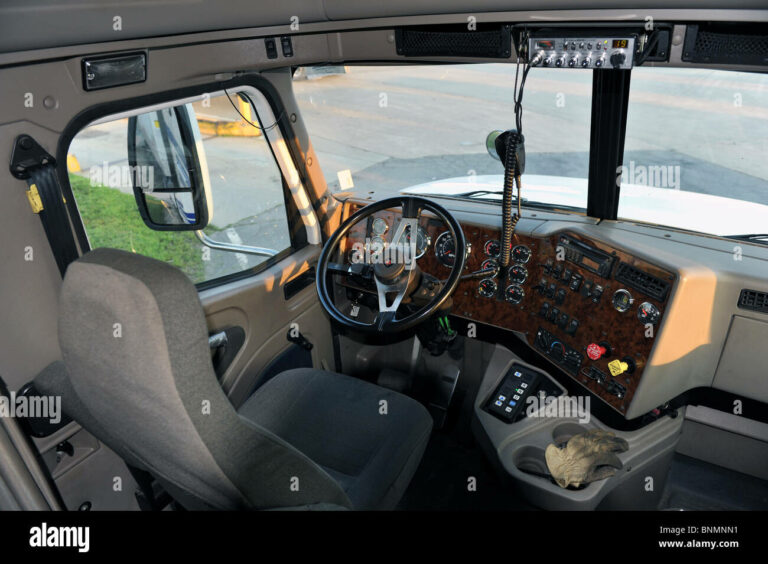Whats The Best Car Brand: Navigating the Automotive Landscape to Find Your Perfect Match
Whats The Best Car Brand: Navigating the Automotive Landscape to Find Your Perfect Match cars.truckstrend.com
The question "Whats The Best Car Brand?" is one that echoes in showrooms, fuels online debates, and sparks countless family discussions. It’s a seemingly simple query, yet one without a singular, definitive answer. Unlike finding the best screwdriver or the best type of flour, determining the "best" car brand is deeply personal, multifaceted, and constantly evolving. It’s not about a single victor in a global competition, but rather about aligning a brand’s core strengths and values with an individual’s unique needs, priorities, and aspirations.
In this comprehensive guide, we will delve into the intricate layers of what constitutes "best" in the automotive world. We’ll explore the diverse criteria that define excellence, provide actionable insights on how to identify the ideal brand for you, and address common misconceptions. By the end, you’ll have a clearer roadmap to navigate the vast automotive landscape and confidently declare what the best car brand is for your specific journey.
Whats The Best Car Brand: Navigating the Automotive Landscape to Find Your Perfect Match
Understanding "Best": A Multi-Faceted Definition
The concept of "best" in the automotive industry is a kaleidoscope of various attributes, each holding different weight for different buyers. What one person considers paramount – say, raw horsepower – another might dismiss in favor of fuel efficiency or advanced safety features. Therefore, to truly understand "best," we must break it down into its constituent parts:
- Reliability & Durability: How consistently does the car perform without needing repairs? How long does it last? Brands like Toyota and Honda have built their reputations on this foundation.
- Performance & Driving Dynamics: This encompasses engine power, acceleration, handling, braking, and the overall feel of driving the vehicle. Enthusiasts often look to brands like BMW, Porsche, and Audi.
- Luxury & Comfort: The quality of interior materials, ride smoothness, noise isolation, ergonomic design, and premium features contribute to this. Lexus, Mercedes-Benz, and Genesis excel here.
- Value & Affordability: This isn’t just about the purchase price, but also the cost of ownership (insurance, maintenance, fuel/charging) and resale value. Hyundai, Kia, and Mazda often offer exceptional value.
- Safety Innovations: How well does the vehicle protect its occupants in a crash, and what preventative technologies does it offer? Volvo and Subaru are often lauded for their commitment to safety.
- Technology & Infotainment: The integration of cutting-edge tech, intuitive infotainment systems, connectivity options, and driver-assistance features. Tesla is a pioneer in this space, with others rapidly catching up.
- Environmental Impact & Electric Vehicles (EVs): For a growing number of buyers, a brand’s commitment to sustainability and its range of electric or hybrid vehicles is a crucial factor. Tesla, Rivian, and many traditional automakers expanding their EV lineups are key here.
- Design & Aesthetics: The subjective appeal of a car’s exterior lines and interior styling.

No single brand perfectly embodies all these attributes at the absolute pinnacle. The "best" brand is the one that most effectively balances these factors according to your personal hierarchy of importance.
Key Factors to Consider When Choosing Your "Best" Car Brand
To help you narrow down your search, let’s explore the leading brands known for excelling in specific areas. This isn’t an exhaustive list, but rather highlights typical strengths:
1. For Unwavering Reliability & Low Maintenance Costs:
- Toyota: Consistently ranks at the top for long-term reliability and low cost of ownership. Their vehicles are known for being practical, durable, and holding their value exceptionally well.
- Honda: Another perennial leader in reliability, known for well-engineered engines, dependable performance, and excellent resale value.
- Subaru: While not always topping the absolute reliability charts, Subaru consistently performs well and builds a reputation for ruggedness and all-weather capability, particularly with their standard AWD.
- Lexus: Toyota’s luxury arm inherits much of its parent company’s legendary reliability, combining it with premium comfort and refined performance.
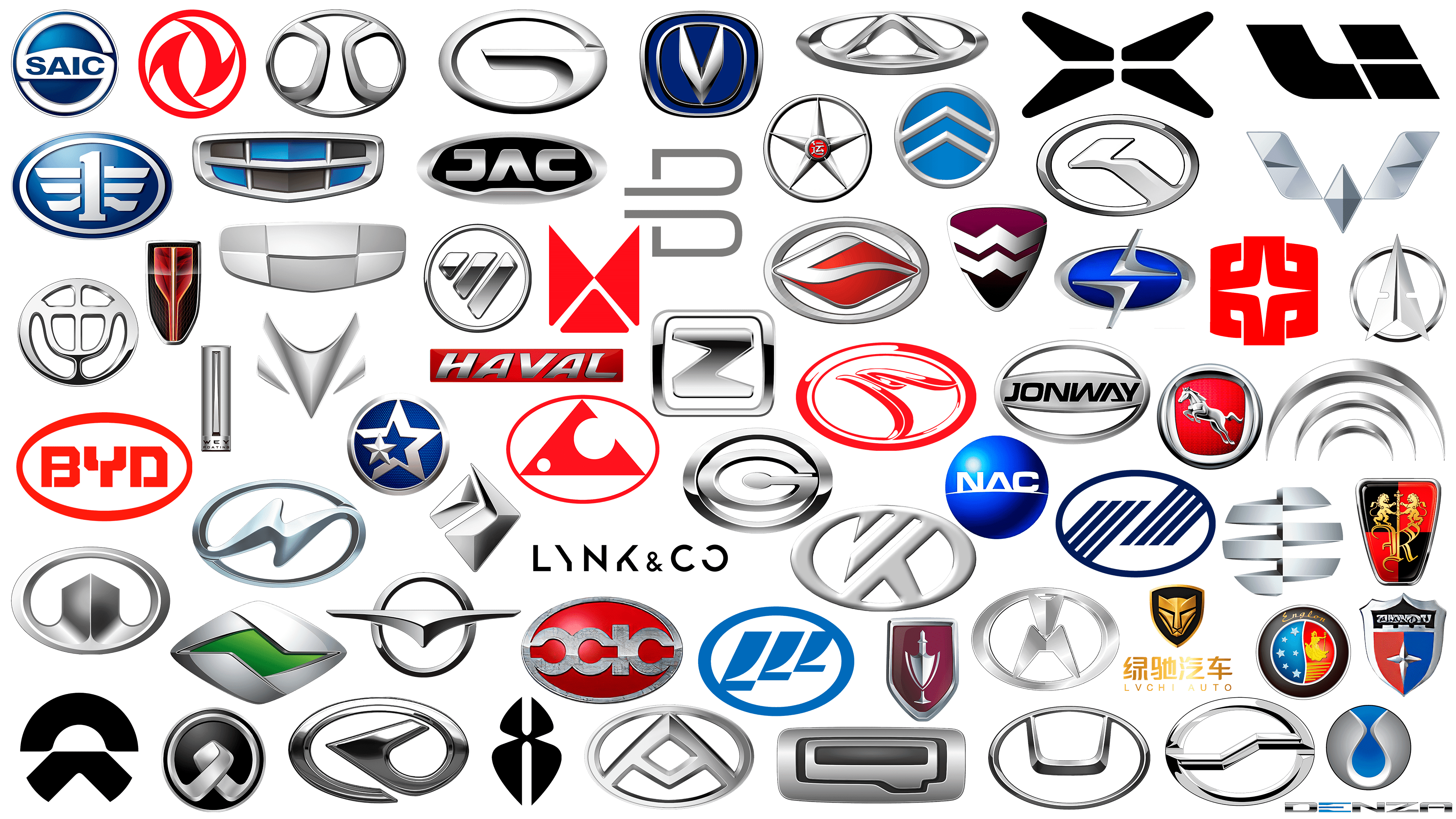
2. For Thrilling Performance & Driving Dynamics:
- BMW: Renowned for its "Ultimate Driving Machine" philosophy, offering a perfect blend of sporty handling, powerful engines, and luxurious interiors across its diverse lineup.
- Porsche: The gold standard for sports cars and performance SUVs, delivering unparalleled driving engagement, precision engineering, and iconic design.
- Mercedes-Benz: Offers a sophisticated driving experience with powerful engines, advanced technology, and a focus on luxurious comfort and refinement.
- Audi: Known for its quattro all-wheel-drive system, sleek design, and a balanced approach to performance, luxury, and technology.
3. For Ultimate Luxury & Comfort:
- Mercedes-Benz: Epitomizes automotive luxury with opulent interiors, cutting-edge technology, and a serene, comfortable ride.
- BMW: Blends luxury with a sporty edge, offering high-quality materials, advanced infotainment, and a driver-centric cockpit.
- Lexus: Focuses on meticulous craftsmanship, whisper-quiet cabins, exceptional reliability, and a plush, refined driving experience.
- Genesis: Hyundai’s luxury brand has rapidly gained acclaim for its stunning design, high-quality interiors, impressive technology, and strong value proposition.
4. For Exceptional Value & Affordability:
- Hyundai & Kia: These sister brands offer an incredible array of features, stylish designs, strong warranties, and competitive pricing across their diverse lineups, from compacts to SUVs and EVs.
- Mazda: Delivers a premium feel and engaging driving dynamics often found in more expensive cars, but at a more accessible price point, along with solid reliability.
- Honda & Toyota: While not always the cheapest upfront, their strong resale values, low maintenance, and excellent fuel economy make them outstanding long-term value propositions.
5. For Pioneering Safety & Innovation:
- Volvo: Has long been synonymous with safety, consistently introducing groundbreaking passive and active safety features designed to prevent accidents and protect occupants.
- Subaru: Emphasizes safety with its EyeSight driver-assist technology and consistently high crash test ratings across its range.
- Mercedes-Benz: Integrates a vast suite of intelligent driver-assistance systems and robust structural integrity into its vehicles.
6. For Cutting-Edge Technology & EVs:
- Tesla: The undisputed leader in electric vehicle adoption, known for its long-range batteries, rapid acceleration, advanced Autopilot system, and minimalist, tech-forward interiors.
- Hyundai & Kia: Have rapidly become major players in the EV space, offering compelling electric models with competitive range, fast charging, and innovative designs.
- Ford & GM: Traditional automakers making significant investments in EVs, introducing popular electric trucks and SUVs with strong performance and technology.
How to Determine Your Best Car Brand: A Step-by-Step Guide
Since "the best" is subjective, the real question is how to find the best car brand for you. Follow these steps:
Step 1: Define Your Needs, Priorities, and Budget
- Budget: Be realistic about what you can afford, considering not just the purchase price but also insurance, fuel/charging, maintenance, and potential depreciation.
- Lifestyle: Are you a single commuter, a growing family, an outdoor adventurer, or someone who frequently travels for work? Your daily routine dictates vehicle type (sedan, SUV, truck, minivan, EV).
- Driving Habits: Do you mostly drive in the city, on highways, or off-road? Short commutes or long road trips?
- Key Priorities: Rank the factors discussed above (reliability, performance, luxury, safety, technology, value, environmental impact) in order of importance to you.
- Must-Have Features: List essential features like AWD, specific safety tech, infotainment system, cargo space, or towing capacity.
Step 2: Research & Compare
- Online Resources: Utilize reputable automotive review sites (e.g., Edmunds, Kelley Blue Book, Consumer Reports, JD Power), manufacturer websites, and enthusiast forums.
- Consumer Reports & JD Power: These organizations provide valuable data on reliability, owner satisfaction, and predicted dependability for various brands and models.
- Watch Reviews: YouTube channels often offer detailed walk-arounds and driving impressions.
- Create a Shortlist: Based on your research, identify 3-5 brands/models that seem to align with your needs.
Step 3: Consider Long-Term Ownership Costs
- Insurance: Get quotes for specific models you’re considering, as premiums vary significantly by make and model.
- Maintenance & Repairs: Research typical maintenance schedules and common repair costs for your shortlisted brands. Luxury brands often have higher maintenance expenses.
- Fuel/Charging Efficiency: Calculate potential fuel savings or electricity costs based on your driving habits and local energy prices.
- Resale Value: Brands with strong reputations for reliability often hold their value better, which can save you money when you eventually sell or trade in.
Step 4: Evaluate Dealership Experience & After-Sales Service
- Reputation: Research local dealerships for customer service reviews. A good relationship with your dealership can make a big difference in ownership experience.
- Service Network: Ensure there are authorized service centers conveniently located near you.
- Warranty: Compare warranty coverage across different brands.
Step 5: Test Drive Multiple Brands/Models
- Hands-On Experience: This is arguably the most crucial step. A car might look great on paper, but only a test drive reveals its true comfort, handling, visibility, and overall driving feel.
- Simulate Your Commute: If possible, drive on roads similar to your daily commute – highways, city streets, rough patches.
- Check All Features: Spend time with the infotainment system, climate controls, and driver-assistance features.
Challenges and Considerations in the Automotive Market
The automotive landscape is dynamic, presenting both opportunities and challenges:
- Supply Chain Disruptions: Ongoing chip shortages and other supply issues can affect vehicle availability and lead to higher prices. Be prepared for potential wait times.
- Rapid Technological Advancements: The swift evolution of EVs, autonomous driving features, and connectivity can make buying decisions complex. Decide if you want to embrace cutting-edge tech or prefer proven, simpler systems.
- Rising Costs: New and used car prices have increased significantly in recent years, as have fuel and insurance costs. Budgeting accurately is more important than ever.
- Brand Loyalty vs. Innovation: While brand loyalty is strong for many, new entrants and established brands making significant shifts (e.g., focus on EVs) mean it’s worth being open-minded.
Practical Advice and Actionable Insights
- Don’t Chase Brand Names; Chase Your Needs: Resist the urge to buy a car just because of a prestigious badge. Focus on what genuinely serves your lifestyle and budget.
- Prioritize Reliability and Safety: These are non-negotiable factors that directly impact your peace of mind and long-term financial health.
- Always Test Drive Extensively: A 15-minute spin around the block isn’t enough. Try to get a feel for the car in various driving conditions.
- Factor in Total Cost of Ownership: The purchase price is just the beginning. Consider all associated costs over several years.
- Be Open to Emerging Brands or Redefined Brands: Companies like Genesis and Rivian are challenging established players, while traditional brands like Ford and GM are reinventing themselves with strong EV lineups.
Typical Price Ranges and Key Attributes by Brand Category
The "best" car brand doesn’t have a single price, as it encompasses a vast spectrum of vehicles. Instead, here’s a representative table categorizing brands by their typical market positioning and the associated price ranges for their new models, along with their primary strengths.
| Brand Category | Example Brands | Key Strengths | Typical Price Range (USD) |
|---|---|---|---|
| Mainstream Value/Reliability | Toyota, Honda, Subaru, Hyundai, Kia, Mazda, Volkswagen | High reliability, strong resale value, good fuel economy, practical features, strong safety ratings, broad appeal. | $20,000 – $45,000 |
| Premium/Entry Luxury | Volkswagen (higher trims), Acura, Infiniti, Buick, Mazda (higher trims) | Balanced performance, elevated interiors, advanced technology, good value for the features offered. | $30,000 – $60,000 |
| Luxury/Performance | BMW, Mercedes-Benz, Audi, Lexus, Volvo, Genesis, Porsche (entry models) | High performance, sophisticated design, premium materials, cutting-edge technology, superior comfort. | $45,000 – $150,000+ |
| Electric Vehicle (EV) Leaders | Tesla, Rivian, Lucid, Hyundai (EVs), Kia (EVs), Ford (EVs) | Pioneering EV technology, long range, rapid acceleration, innovative software, sustainable focus. | $40,000 – $200,000+ |
| Truck/SUV Specialists | Ford, Chevrolet, Ram, GMC, Jeep, Toyota (Trucks/SUVs) | Robust utility, high towing capacity, off-road capability, strong work vehicles, family-friendly SUVs. | $30,000 – $90,000+ |
| Ultra-Luxury/Exotic | Ferrari, Lamborghini, Rolls-Royce, Bentley, McLaren, Bugatti | Ultimate performance, exclusivity, bespoke customization, iconic status, unparalleled craftsmanship. | $100,000 – $1,000,000+ |
Disclaimer: Prices are highly variable based on specific model, trim level, optional features, regional market conditions, and incentives. This table provides general ranges for new vehicle purchases and is subject to change.
Frequently Asked Questions (FAQ)
Q1: Is there one objectively "best" car brand that everyone agrees on?
A1: No, absolutely not. The "best" car brand is subjective and depends entirely on an individual’s specific needs, budget, priorities (e.g., reliability, performance, luxury, safety), and lifestyle.
Q2: Which car brands are generally considered the most reliable?
A2: Historically, Toyota and Honda consistently rank at the top for reliability. Lexus (Toyota’s luxury division) also maintains an excellent reputation for dependability. Subaru, Mazda, and some models from Hyundai/Kia have also shown strong reliability in recent years.
Q3: Which car brands have the best resale value?
A3: Brands known for reliability and durability tend to have strong resale values. Toyota, Honda, Subaru, and Lexus are frequently cited for excellent retention of value. Certain truck brands like Ford and Chevrolet also hold their value well due to demand.
Q4: What are the most important factors to consider when buying a car?
A4: Your budget (including long-term ownership costs), your specific needs (e.g., seating capacity, cargo space, towing), reliability, safety features, fuel efficiency (or EV range), and how the car feels to drive (test drive is crucial).
Q5: Are luxury cars worth the extra cost?
A5: It depends on your priorities. Luxury cars offer superior comfort, performance, advanced technology, and premium materials. If these aspects are highly important to you and fit within your budget, they can be "worth it." However, they typically come with higher purchase prices, insurance costs, and maintenance expenses.
Q6: How important is fuel efficiency/EV range when choosing a brand?
A6: Extremely important for many buyers, especially with fluctuating fuel prices and growing environmental consciousness. If you have a long commute or want to minimize your carbon footprint, prioritizing fuel-efficient hybrids or electric vehicles from brands known for their EV tech (like Tesla, Hyundai, Kia, Ford) can save you significant money and reduce your environmental impact.
Q7: Should I buy a new or used car?
A7: Both have pros and cons. New cars offer the latest technology, full warranty coverage, and customization options but depreciate rapidly. Used cars are more affordable and often offer better value for money, but may have less warranty coverage and require more immediate maintenance. Your budget and risk tolerance should guide this decision.
Conclusion
The quest for "Whats The Best Car Brand" is a journey, not a destination. There is no single champion that fits every mold or satisfies every desire. Instead, the true "best" car brand is the one that perfectly aligns with your individual priorities, seamlessly integrates into your lifestyle, and provides you with confidence, comfort, and satisfaction every time you get behind the wheel.
By thoroughly assessing your needs, diligently researching the market, test-driving potential candidates, and considering the long-term implications of ownership, you empower yourself to make an informed decision. Remember, the ultimate measure of a car brand’s "bestness" isn’t found in a trophy cabinet or on a popularity poll, but in the joy and utility it brings to your everyday life. Happy driving!

